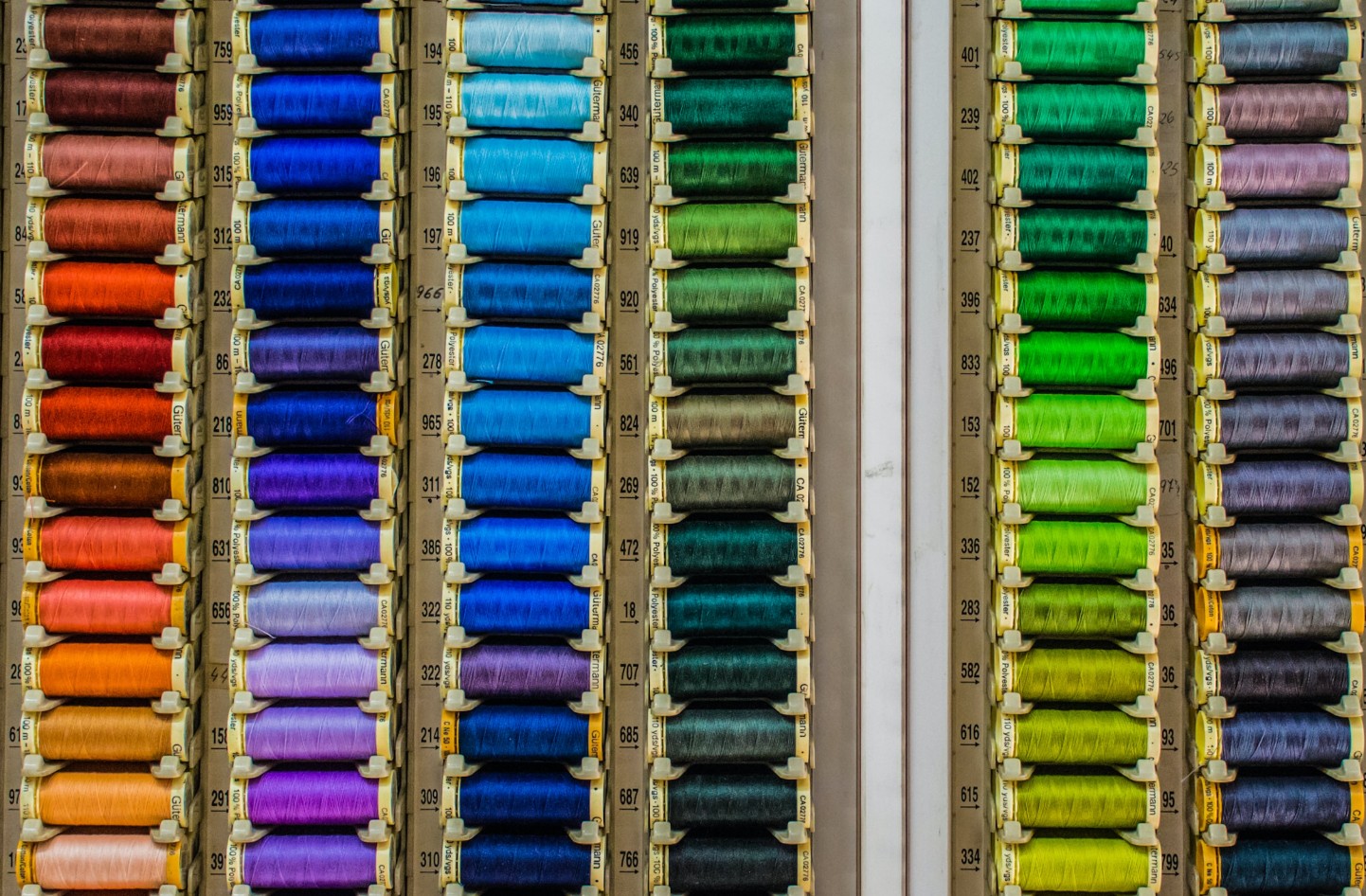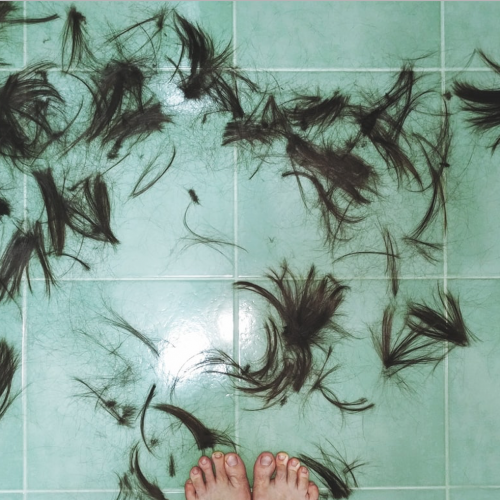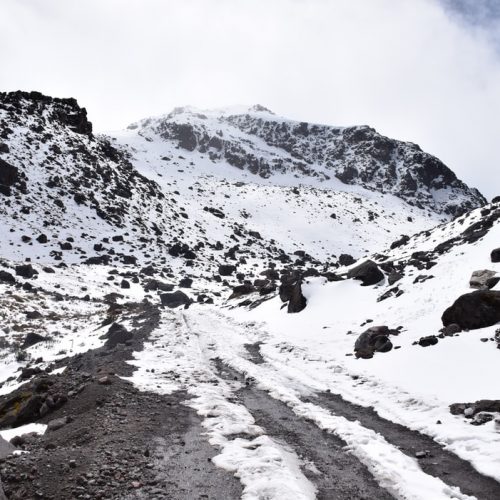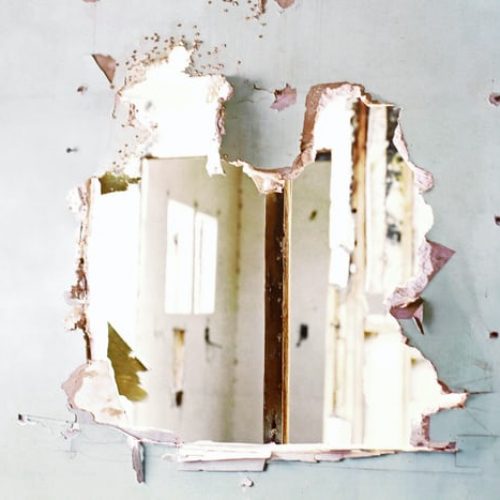One New York winter day, three separate women on three separate occasions asked where I was from. The first was a Black woman, a receptionist at the NYU dental clinic. We’d always had pleasant exchanges. That day, she complimented me on my hair. It was the longest it had ever been. I could wear it in a ponytail or keep it loose. That day, I’d worn it loose. What you put in it? Her own hair fell like an ocean of jet black waves. A mixture of coconut and jojoba oils to hydrate the curls. My curls vined down my neck, resting on my pashmina. Your hair is so beautiful. Those curls… Where are you from?
The second was a White woman on the 1 train. I was heading uptown to celebrate with a friend who’d earned her master’s degree. The rush-hour crowd had forced me to my feet, grasping a pole, and facing a wall plastered with ads and NYC metro poems. My eyes met hers where she sat, just to the side of a poem poster. That is such a beautiful scarf. I mean the colors… She pointed towards the tassels. I smiled. It’s a pashmina. I bought it around 14th and Union Square. The pashmina’s gold inlays conducted dancing purples and greens in an intricate choreography that ended in a grand finale of muted mustard green tassels. Thanks for the tip! And then she said: Where are you from?
The third was a Chilean woman. I arrived at a Mexican restaurant up near the ’90s and Broadway. While I grabbed a fishbowl frozen Cadillac margarita, my friend, the newly minted master, introduced me to a former co-worker. Wow, que pelo hermoso. Her smile revealed rosy gums and perfectly round cheeks. And your outfit…you got like, this whole bohemian look! She sipped, hummed her enjoyment, then asked: Are you an artist? I laughed. Yes, I’m an actor and a writer. She shook her head. Good luck. Must be hard. She took a second sip. It is, but a cheap way to get therapy! We laughed and toasted. She brought back that gummy smile and painted a soft outline of me with a flamenco hand. I can’t get over your look. Your skin color is so beautiful, and your hair looks so healthy. Where are you from?
I’d left the house that winter morning wanting my hair to shine. I wanted to show off its mixed roots. My pashmina complimented my bohemian look. My dark brown skin glowed from layers of raw shea butter. I wanted to color a post-snowfall-grey-slush city with my natural beauty. Instead, I had that beauty reflected back at me, predicated on the myth of American as white, never brown. But, my birth certificate confirms my American-ness, as does my social security number, my veteran status, and having spent the majority of my adult life here in the United States of America.
With no malintent, these women exoticized me, transformed me into a sun-toasted unicorn escaped from the fabled land of “Not Here.” My curls, extraterrestrial. My fashion sense, wildly un-American. My skin color and features, mind-altering. A mythic creature, invented by a culture that views non-Eurocentric bodies as something else. From somewhere else. Not American. Other. Alien.
To the first woman, the receptionist at the dental clinic, I said: You know, I’m from New York City, born and raised. My parents are from the Dominican Republic. Her salon threaded eyebrows lifted. Oh! No wonder you’ve got that good hair. Your peoples are mixed with Europeans.
To the second woman sitting on the 1 train, I answered: Well, technically, my mother’s womb. But you know, Washington Heights. I swear I saw that sun-toasted unicorn reflected in her clear-blue-sky-eyes.
To the third woman, who shared a toast with me at happy hour, I combined the first and second replies. She chuckled. You know what I mean! I continued: But I feel like I’m not from one single place. Yeah, I am Latino. But I’m also Black. I don’t always relate to Dominicans, and I’ve had Black people question if I’m ‘Black Enough.’ I feel like there’s an in-between for me where I start to make sense of who I really feel I am. She nodded and mhmm’ed. The word “American” is a misnomer for people like us: descendants of the cultural collision when Europeans forced enslaved Africans across an ocean to an island they had invaded to replace an indigenous population decimated through forced labor, disease, and outright slaughter.
The white gaze renders my skin color as a freak show, while the features ferried from Europe remain the standard to which all others must live up to, or fail. I have looked into those eyes, and I have seen their nightmare: I am dangerous to them. They spend hours at the tanning salon or getting their hair braided and beaded. They want my rhythm and my song, be it jazz, hip-hop, salsa, house, or merengue. They want it all, without the struggle of being dark-skinned, curly-haired, big-boned, full-lipped, broad-nosed, and hybrid-tongued in White America. They want the magic sans the real. They want to keep their aliens.
It’s been four years since that winter day. My hair is shorter. My style more poet meets scholar rocking a Nehru collar and chucks. I don’t get asked where I’m from as much. But when someone does ask, I no longer mind. Instead, I share an American story about immigrants. About the magic of brownness. And the reality that there is no such thing as White America. They made it up.
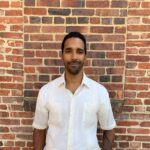
Armando Batista
Armando is a poet, performer, and educator. The child of Dominican immigrants, he was born and raised in Washington Heights, NY. Armando earned his MFA in Writing from Vermont College of Fine Arts, and a BA in Theater from Temple University. He is currently working on a poetry collection and a travel memoir, and has had his poetry translated and published in the Mexican literary journal CRACKEN. You can follow him on IG @armando_batista_poet.

